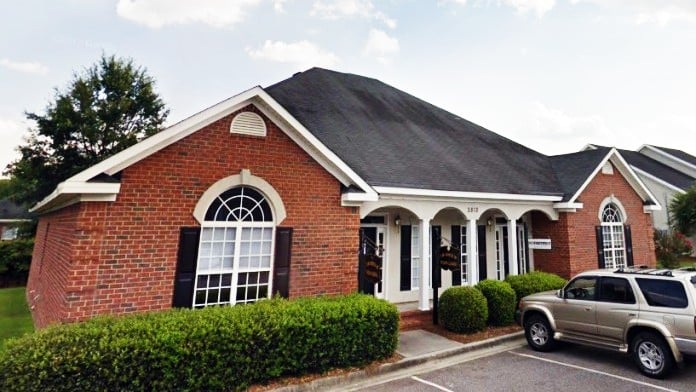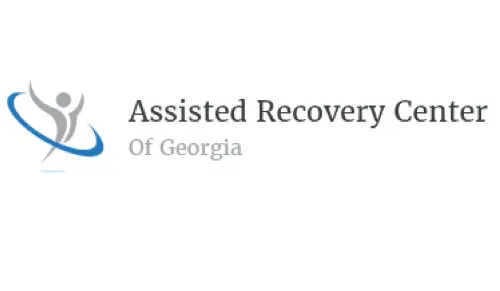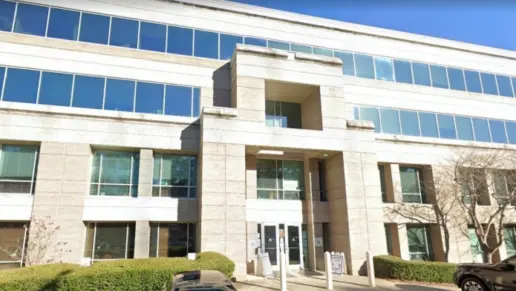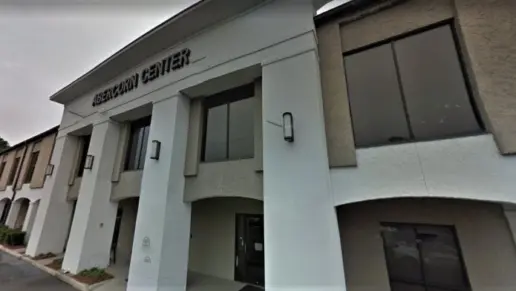About RiverMend Health Centers – Drug Rehab Augusta
RiverMend Health Centers, in Augusta, Georgia, is a comprehensive, 12 step focused drug and alcohol rehab offering medically supervised detox and inpatient, outpatient, and aftercare services. Specialized programs for LGBTQ+ persons, young adults, and persons with co-occurring mental health disorders are available. Primary treatment modalities combine psychotherapy with recovery focused life skills training and complementary care.
RiverMend Health Centers is an integrative, 12 step focused addiction recovery center in Augusta, Georgia. They provide dual diagnosis care, medically supervised detox, and inpatient, outpatient, and aftercare services. Dedicated programs for LGBTQ+ persons, young adults, and adolescents are available.
RiverMend Health Centers offers round the clock medical supervision for clients undergoing detox and may prescribe FDA approved medications to ease withdrawal symptoms and prevent complications.
RiverMend’s inpatient program enables clients to focus on their recovery in a secluded, home like setting with luxurious amenities, including private rooms. Clients participate in intensive, trauma informed individual, group, and family therapy drawing on a range of proven modalities, including CBT and DBT. Their personalized treatment programs also include a variety of evidence based complementary treatments, including massage, meditation, yoga, acupuncture, EMDR, nutrition therapy, creative arts therapy, and experiential therapy. They also emphasize recovery focused life skills training, including courses in self care, wellness, coping, stress and anger management, and relapse prevention.
RiverMend facilitates long term sobriety through a robust continuum of care tailored to clients’ evolving needs. Levels of care include partial hospitalization (PHP), intensive outpatient (IOP), outpatient, sober living, and aftercare. In addition to ongoing psychotherapy, life skills development, and complementary care, these programs support community, workforce, and family integration through a host of training and coaching opportunities and social services referrals.
RiverMend is Joint Commission accredited and accepts private insurance and self pay.
Latest Reviews
Rehab Score
Gallery

Location
Other Forms of Payment
Private insurance refers to any kind of healthcare coverage that isn't from the state or federal government. This includes individual and family plans offered by an employer or purchased from the Insurance Marketplace. Every plan will have different requirements and out of pocket costs so be sure to get the full details before you start treatment.
Self-pay involves paying for treatment out of your own pocket. You can use savings or credit, get a personal loan, or receive help from family and friends to fund your treatment. If you don't have insurance or your insurance plan doesn't cover a specific program, self-pay can help ensure you still get the care you need.
Addiction Treatments
Levels of Care
Treatments
The goal of treatment for alcoholism is abstinence. Those with poor social support, poor motivation, or psychiatric disorders tend to relapse within a few years of treatment. For these people, success is measured by longer periods of abstinence, reduced use of alcohol, better health, and improved social functioning. Recovery and Maintenance are usually based on 12 step programs and AA meetings.
A quality drug rehab in Georgia can help you overcome addiction. This environment is designed to help you address the complex issues contributing to drug dependence. The goal of treatment is to give you the tools you need to make a full recovery.
Many of those suffering from addiction also suffer from mental or emotional illnesses like schizophrenia, bipolar disorder, depression, or anxiety disorders. Rehab and other substance abuse facilities treating those with a dual diagnosis or co-occurring disorder administer psychiatric treatment to address the person's mental health issue in addition to drug and alcohol rehabilitation.
A combined mental health and substance abuse rehab has the staff and resources available to handle individuals with both mental health and substance abuse issues. It can be challenging to determine where a specific symptom stems from (a mental health issue or an issue related to substance abuse), so mental health and substance abuse professionals are helpful in detangling symptoms and keeping treatment on track.
Opioid rehabs specialize in supporting those recovering from opioid addiction. They treat those suffering from addiction to illegal opioids like heroin, as well as prescription drugs like oxycodone. These centers typically combine both physical as well as mental and emotional support to help stop addiction. Physical support often includes medical detox and subsequent medical support (including medication), and mental support includes in-depth therapy to address the underlying causes of addiction.
Programs



Clinical Services
Cognitive behavioral therapy is a form of psychotherapy that takes a practical approach to changing maladaptive behavioral patterns like substance abuse. A central element of CBT at RiverMend Health Centers is exploring the different consequences and risks associated with drug use as well as developing strategies for coping with temptations. CBT explores an individual’s cognitive processes including attitudes, images, beliefs and thoughts to understand how they affect behaviors as a way of managing emotional distress. CBT is proven very effective in treating other behavioral health issues and a range of other problems that may co-occur alongside addiction.
Dialectical behavior therapy is a cognitive behavioral treatment effective in treating substance abuse and dual disorders. DBT was originally developed to treat patients with borderline personality disorder, but has proved effective in helping a wide range of other disorders such as substance abuse, depression, eating disorder and more. DBT focuses on sets of behavioral skills including distress tolerance, interpersonal effectiveness, emotion regulation, and mindfulness.
In conjunction with individual therapy, group therapy work is a very powerful and transformative means to understand addiction and control it. Individuals strongly benefit from group therapy work because it helps them to see that they are not alone in their battle with substance abuse and dual disorders. One of the biggest challenges patients face in addiction treatment is feeling that they are worthy of recovery. Group therapy gives individuals a greater perspective on the power of addiction, which is powerfully therapeutic and cathartic.
At RiverMend Health Centers, individual and group therapy are conducted together to complement each other during addiction treatment for those battling substance abuse. Individual therapy provides individuals with a safe one-on-one environment to work on emotional and psychological challenges that might be too sensitive to discuss in group therapy. It provides a safe setting to address motivational issues that stands between you and sobriety. It allows individuals to look closely at his or her own behavioral patterns and the role that drugs have played in life.
During rehab in Georgia, you may engage in motivational interviewing. This typically lasts one to two sessions and is designed to address any ambivalence you have toward change. It helps you explore your current situation and motivations and commit to making changes for the future.
Trauma therapy addresses traumatic incidents from a client's past that are likely affecting their present-day experience. Trauma is often one of the primary triggers and potential causes of addiction, and can stem from child sexual abuse, domestic violence, having a parent with a mental illness, losing one or both parents at a young age, teenage or adult sexual assault, or any number of other factors. The purpose of trauma therapy is to allow a patient to process trauma and move through and past it, with the help of trained and compassionate mental health professionals.
The skills you learn in couples therapy are designed to help you successfully address relationship challenges as they arise. These skills can include anger management, conflict resolution, communication, and problem solving.
EMDR is a therapeutic modality originally developed to help process trauma. In an EMDR session, a patient is prompted to undergo eye movements that mimic those of REM sleep. This is accomplished by watching a therapist's finger move back and forth across, or following a bar of light. The goal is repetitive sets of eye movements that help the brain reprocess memory, which can significantly reduce the intensity of remembered traumatic incidents. Associated memories can heal simultaneously, leaving patients significantly calmer, more stable, and more emotionally relaxed.
Family members of loved ones using prescription drugs are profoundly affected by the addiction on a deeper level. At RiverMend Health Centers, they strongly encourage family member and friends to actively participate in their family program which allows loved ones to learn about prescription drug abuse, enabling triggers, and gain deeper insight into the disease. They also offer multi-family group sessions to foster connectedness with other families that have endured similar experiences. Through time, dedication, and understanding, trust and healing can be restored.
Life skills trainings involve all the skills a person must have in order to function successfully in the world. These include time management, career guidance, money management, and effective communication. Truly successful addiction recovery is based on the ability to not only live substance-free, but to thrive. Life skills teaches the practical necessities of functioning in society, which sets clients up for success in life, and therefore sobriety.
Nutrition therapy has short term and long term goals. In the short term, it helps restore your health so you can recover from the physical effects of addiction. Long term, it helps you understand overall health and nutrition to set you up for a healthy lifestyle in recovery.
Creativity is inherently healing, and can help those in recovery express thoughts or feelings they might not otherwise be able to. Creative arts therapy can include music, poetry/writing, painting, sculpting, dance, theater, sandplay, and more. Unlike traditional art, the final product matters far less than the experience of creation and expression itself.
At RiverMend Health Centers, they offer a variety of experiential therapies to help overcome substance abuse from all angles while also appeal to patient’s personal interests. Their experiential therapies include art therapy, expressive group, and yoga. Through experiential treatment techniques, patients can explore emotional, social, spiritual, and relational challenges through expressive means.
Amenities
-
Yoga Studio
-
Private Rooms
Accreditations

The Joint Commission, formerly known as JCAHO, is a nonprofit organization that accredits rehab organizations and programs. Founded in 1951, the Joint Commision's mission is to improve the quality of patient care and demonstrating the quality of patient care.
Joint Commission Accreditation: Yes
Contact Information
2812B Hillcreek Dr
Augusta, GA 30909


